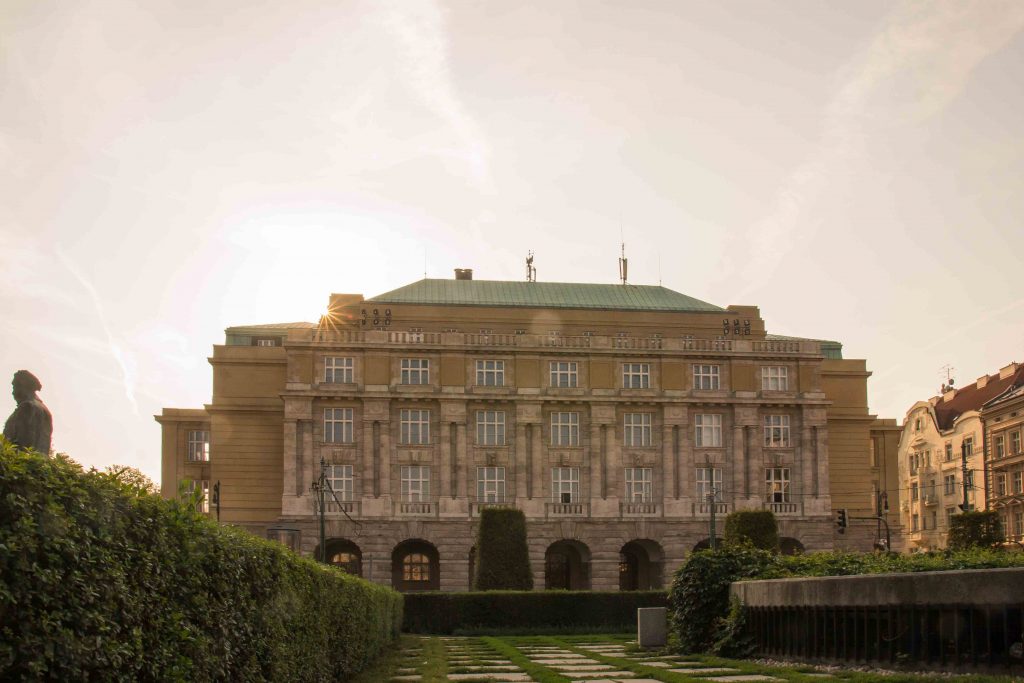The Office of Commercial Programmes and Cross-Sectoral Cooperation is mainly responsible for the organisation of semester and short-term teaching programmes for international students and individual payers from abroad, the promotion of these programmes, and coordinating the preparation of new ones and the development of existing commercial study programmes and summer schools. Integral parts of the office are the Transfer and Impact Office and the Centre for Lifelong Learning.

Ivana Petrželová, who used to hold the Director of International Programs position at the International Affairs Office, became the Head of the office. The office falls under the strategic management of the Bursar, the Vice-Dean for External Relations and Lifelong Learning, and the Vice-Dean for International Relations. Contact details for the department are available here.
Commercial Teaching Programmes
The Office of Commercial Programmes will continue to organise semester and short-term teaching programmes (ECES programme) in the coming years and will arrange and coordinate existing and new CU FA summer schools.
Every year as part of the ECES programme, CU FA organises extra selection programmes in cooperation with many foreign universities, including the University of Miami, Boston College, and George Washington University. Another major project is the Czech Studies programme, which has offered Czech language instruction for foreigners as part of lifelong learning since 1992. Its modules include language courses, lectures, seminars, and other activities that help students master the Czech language and get acquainted with local culture, literature, and history. Certified Czech language exams with an ALTE license (proficiency A2–B2) are included.
The Office of Commercial Programmes and Cross-Sectoral Cooperation follows modern trends in commercial teaching and adapts the coordination of the preparation of new programmes to the gained experience and, based on communication, adjusts it to the countless partners and third parties with whom it works closely. Developing existing programs is a priority to remain competitive and relevant, which is why ECES program representatives travel to several international events each year (such as NAFSA) to network with new partners.
Transfer and Impact Office
Promoting the third role of the university and knowledge valorisation practice may be an unfamiliar concept; therefore, the office’s priority will be education and setting up direct collaboration with academics and research teams. Only in later phases can we anticipate more active project implementation. The Transfer and Impact Office is based on the definition of the third role, which the whole of Charles University advocates for.
Actively supporting the research knowledge valorisation and its transfer into practice is an essential part of the third role of universities. In addition to commercial parties, public or non-profit parties are frequent users of complex, interdisciplinary know-how, which need academic knowledge not only to address partial practical issues in their daily practice but also for strategic analysis and planning or, for example, communication to the general public. This transfer positively impacts the general public, whether through the creation of innovative services, products, or improvements in public policies, strategies, societal decision-making, better working conditions, education, and quality of life. Promoting the transfer of university research results into practice will help accelerate the transfer of such knowledge, contributing to further innovation and improvement. The aim of the Transfer and Impact Office in this area is to support the creation and implementation of commercial and impact (socially beneficial) projects at all stages of their development.
The Transfer & Impact Office will work closely with academics to transfer their current scientific knowledge into practice, whether in the form of a new service, product, spin-off, collaboration with public bodies, etc.
Centre for Lifelong Learning
Since its establishment, the centre has successfully provided educational courses for various target groups, such as the University of the Third Age, interest courses, vocational preparation courses, and preparatory courses for university studies. In conjunction with the Office of Commercial Programmes and Cross-Sectoral Cooperation, the Centre for Lifelong Learning will create an educational, communication, information, and coordination workspace for the systematic development of lifelong learning, support the creation and implementation of new courses, and making educational programmes accessible to a broader range of interest groups. The aim is to create unique and flexible forms of education, methodologies, and online courses for the general public and particular interest groups.




